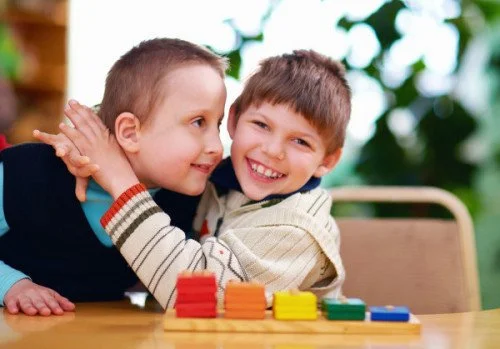F-words in childhood disability
To begin with, I want to reassure you all that this post does not contain any profanities 😉...
I have recently read an interesting article (https://canchild.ca/en/research-in-practice/f-words-in-childhood-disability) that has made me think about how I, as a health professional, can best help children with disabilities and their families. I am passionate about making sure that the support and care I provide for the children and families I see actually meets their wants and needs. But I have often wondered whether I hit this mark and how I can improve the care I provide.
The article and the accompanying video provide a new way of considering the aspects of life that are meaningful for children with disabilities and their families. It also provides health care providers (like me) with a framework for ensuring that we consider the whole child and their environment when providing care.
Here are the six F-words in childhood disability:
Function – What can your child do? How they do it is not as important. In the past, therapies have been focused on achieving or working towards ‘normal’ function. However, for children with a disability, this goal may not be achievable or relevant. And why should the child work towards what is ‘normal’ when the task can be achieved in another way that is easier for them? We, as therapists (and generally as a society), need to let go of the concept of ‘normal’ function.
Family – Families are a central component to a child’s life, and therefore should be a central component to a child’s therapy and support services. Partnering with families has been shown over and over again to be important to service outcomes and satisfaction with care.
Fitness – Fitness is so important for our general well-being, in both our body and our mind. However, fitness can be overlooked for children with disabilities, probably because so much time and focus is spent on helping the child to achieve ‘normal’ movements and milestones.
Fun – I love this quote from the video – “It is the ‘doing’ rather than the outcome that is most meaningful to children”. Having fun is integral to childhood. Sometimes therapy is not fun. Some hypothetical questions to think about – What is more important: doing therapy , or just being a kid and having fun? And who gets to decide this?
Friends – Opportunities to develop friendships and social supports can sometimes be challenging for children with disabilities. Health professionals can facilitate, encourage or support participation in social opportunities for children with disabilities, for example by supporting children to participate in community organised programs and activities.
Future – Children with disabilities grow up to be teenagers and adults with disabilities. “Do not decide what is impossible”. This quote really opens our eyes to the future possibilities and opportunities for children with disabilities, which we sometimes lose sight of because we are so focused on the here and now. As a first step towards incorporating the F-words into my clinical practice, I have added a section to my therapy planning form that asks children and parents to consider their hopes and wishes for each of the F-words. I hope to incorporate these concepts more into my clinical practice, and I am open to any suggestions or feedback from my clients and their families about how well we are addressing each of these areas.

